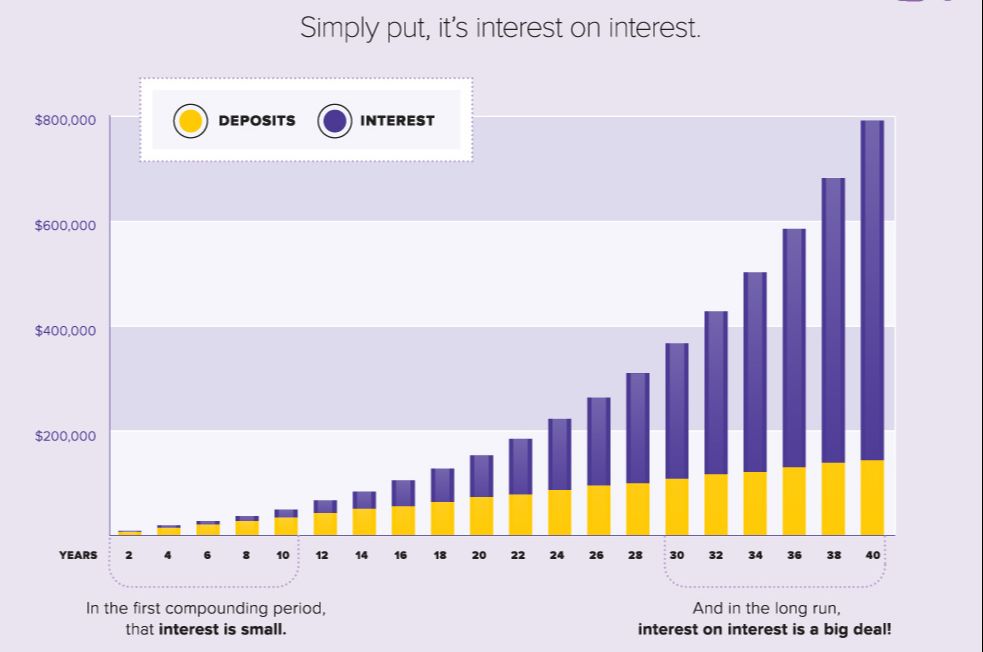A Marshmallow World

I’m sure you’ve heard about the Marshmallow Test. Back in 1972 a curious Stanford psychologist (they’re always from Stanford) called Walter Mischel ran an intriguing experiment.
It was a very simple study designed to explore attitudes to delayed gratification. A child was offered a choice between one small immediate reward, or two small rewards if they waited for a period of time.
The researcher would leave the child in a room with a single marshmallow for about 15 minutes. If the kid managed to avoid eating the marshmallow in that time, they would be rewarded with an extra marshmallow.
Pretty simple right? Hang on in there and demonstrate restraint for just a quarter of an hour for a greater reward later. But it turns out it’s very hard not to dive straight in and eat the tasty morsel there and then.
There are some delightful videos of kids contorting themselves in denial of what they’d really like to do, desperately trying to not eat the marshmallow but . . . oh my gosh “It smells so yummy!” - they don’t all succeed. In fact most of them don’t.
Letting The Days Go By
Researchers followed the participants of that study over the subsequent years tracking their various life outcomes.
Turns out that the kids who could hold on for the second marshmallow, just thirty per cent of them by the way, tended to have better life outcomes.
They were the ones who did better in school and had higher self-esteem compared to their peers. They were also less likely to become obese or fall into drug abuse.
Incidentally they ran the Marshmallow test on inmates on Death Row and not one of them waited. They all immediately chomped down on what was in front of them. Although I’m not sure what this would prove as I’m guessing that being on Death Row would kind of change your feelings about how much time you’ve got left anyway.
When we do manage to avoid succumbing to the allure of the single marshmallow we’re demonstrating delayed gratification. We’re putting our future self above our current self.
This is almost always the right thing to do but at the same time it’s always really bloody difficult.
For one thing it’s a gamble. There’s no guarantee of the future. There were people on the Titanic who pushed the dessert trolley away remember.
So there is a balance to be had but overall, delayed gratification is a great thing to master.
I Will Be Your Father Figure
I was dead chuffed the other day to run my own version of the marshmallow test.
I’ve employed my 16 year old daughter as a digital assistant. Basically she’s moving all my old Top Tips emails ready to be published on the blog.
That’s a lot of mind numbing copying and pasting. But I’m paying her very well. We agreed on a rate of £10 an hour. I think that’s pretty generous. Especially as she hasn’t got any commuting time, I’m covering all the overheads and she won’t be paying tax.
After few days of her uploading I thought I’d run my test. I asked her if she’d heard of the Marshmallow Test. She had.
“In that case I’d like to suggest something,” I announced.
“Oh God!” she groaned, “I don’t know what you’re going to say but I just know it’s going to be boringly good for me in the long run and horribly bad for me now. Amiright?”
It turns out I’m easier to read than the Oxford Reading Tree series.
“I’d like to change the amount I’m paying you to £7.50 an hour . . .”
“OMG! No way. We agreed £10.You can't just change . . .”
“Hold on. Wait for it. Hear me out. I’ll pay you £7.50 an hour that you can take right now but I’ll also pay you an extra £7.50 an hour that you have to put in your Junior ISA.”
She groaned even louder.
“So that's £15 an hour."
"I can do the maths you know."
"Or you can stick with the full £10 an hour now . . .”
“Okay, okay!”
“What?"
"I said okay!"
"Which one do you want?”
“I said yes!” she moaned loudly. “I'm not happy about it, obviously, cos I'll have less spending money but I'd be stupid not to accept it! And I’m NOT STUPID!”
Reader. My work here is done.
The Future's So Bright
I think there are two main reasons she agreed. One is that we’ve talked before about the value of delayed gratification and she’s very much embraced it.
Not in all aspects of life obviously, she’s a sixteen year old girl, but in more ways than I’d ever committed to before the age of, erm, thirty.
She also knows about the power of of compounding and has got a firm interest in things being financially good for her when she’s the age I am now.
Compound interest is awesome. This image sums it up.

After a while the interest created will start to be worth more each year than the amount being saved. And the sooner you get to that stage the sooner you’re in clover.
You need two things. The best interest rate you can find. And secondly to start early and consistently keep adding.
But that’s finance and not an area I normally talk about. So you won’t be surprised when I now segue smoothly into one of my favourite topics: the power of perspective.
Friends Will Be Friends
Something I read recently took the concept of compound interest and applied it to relationships.
(I really thought I’d read it in Jimmy Carr’s autobiography but I’ve run a search through my Kindle and there’s no sign of it there. So now I don’t know where I read it and maybe I’ve got it a bit wrong cos I can’t check it but I like it nonetheless.)
Anyway, here it is . . .
The idea is that all the best returns you get from life come from compound interest. The money stuff is obvious but this idea also says that the returns you get from relationships is from compounding.
Think of people who are good friends. The ones who are there for you when you need them. The ones who say “How are you?” and then “No, really, how are you?”
These are the ones who, over time you’ve learned to trust. You’ve learned over time that they care for you as much as you care for them. The relationship is strong and reliable because over time the way you’ve behaved with and for each other has compounded.
Those are the people in your life who you need to continue to invest more in. They’re the ones with compound interest. Consider the people in your life and the amount of effort you put into spending time with them.
Once you find these people then you need to put as much into them as possible from as soon as possible. They have the best interest rate and they will compound earlier and give you better returns.
What You're Really Worth To Me
To be blunt they’re worth more than the others. And so accordingly these are the people you should be investing in. You’re not investing your money but your time and your emotions, two of the most precious things you have.
I think looking at the returns from a compound interest perspective is an interesting way to consider your relationships. It might help to recognise the true and magnified value they deliver.
Take a moment this weekend to reflect on the value of your various relationships. Which are the ones providing you with the best compounded returns?
Stay connected with news and updates!
Join Iain's mailing list to receive the latest Top Tips every Friday. As a subscriber you'll always be the first to read it, BEFORE it makes it to the blog. Plus you'll get the latest news and offers.
Iain hates SPAM. He will never sell your information, for any reason.
